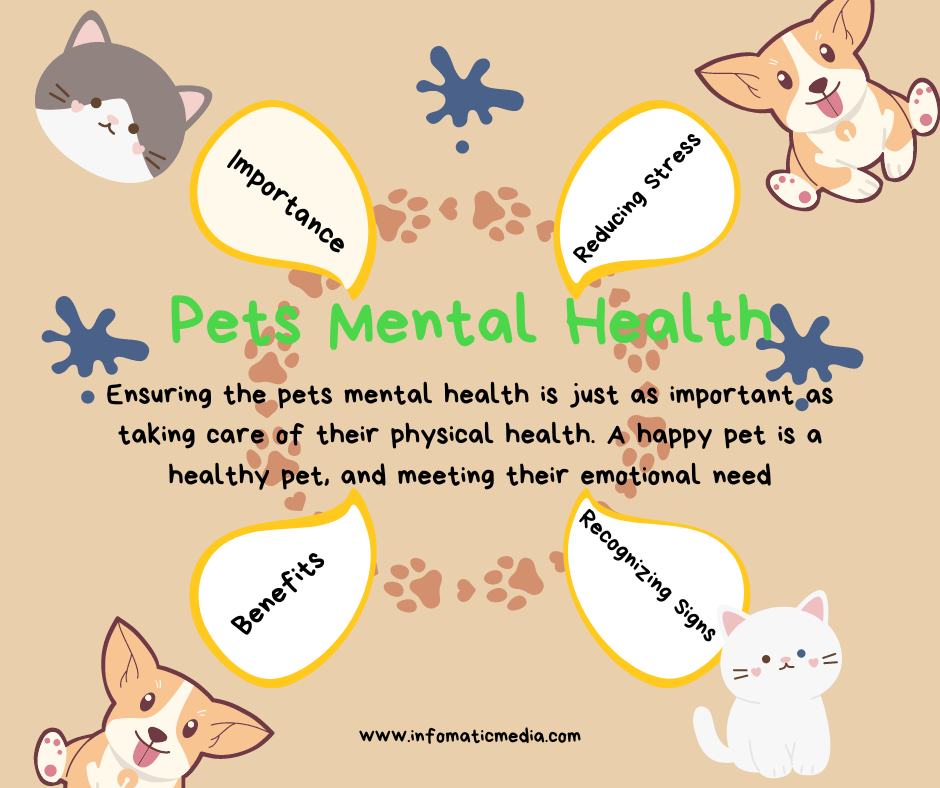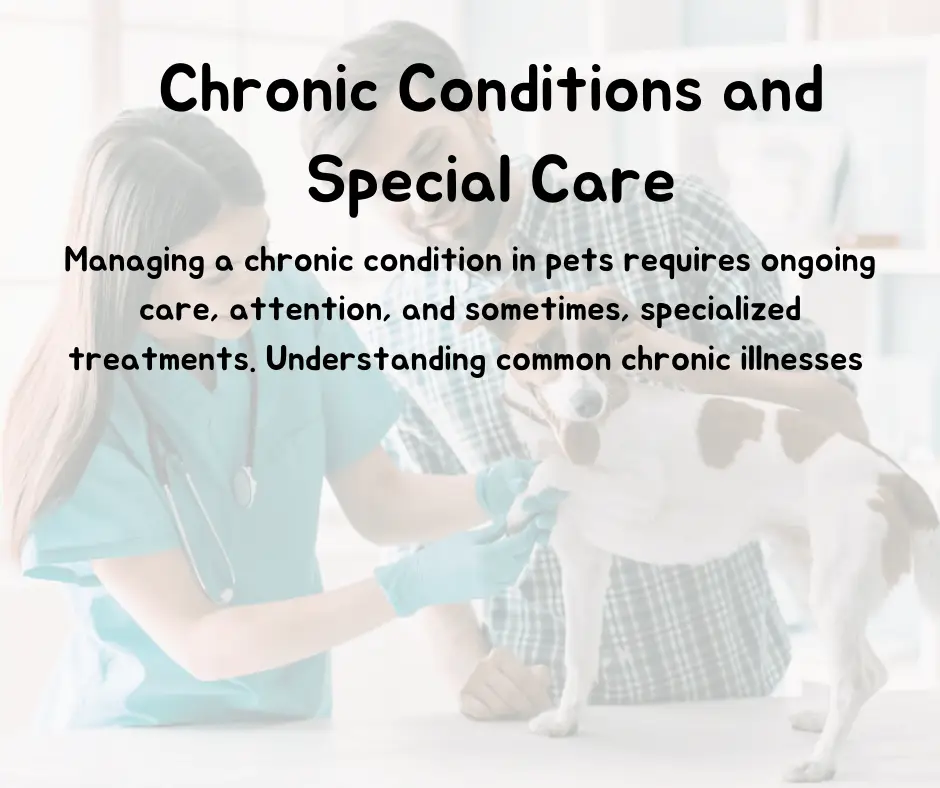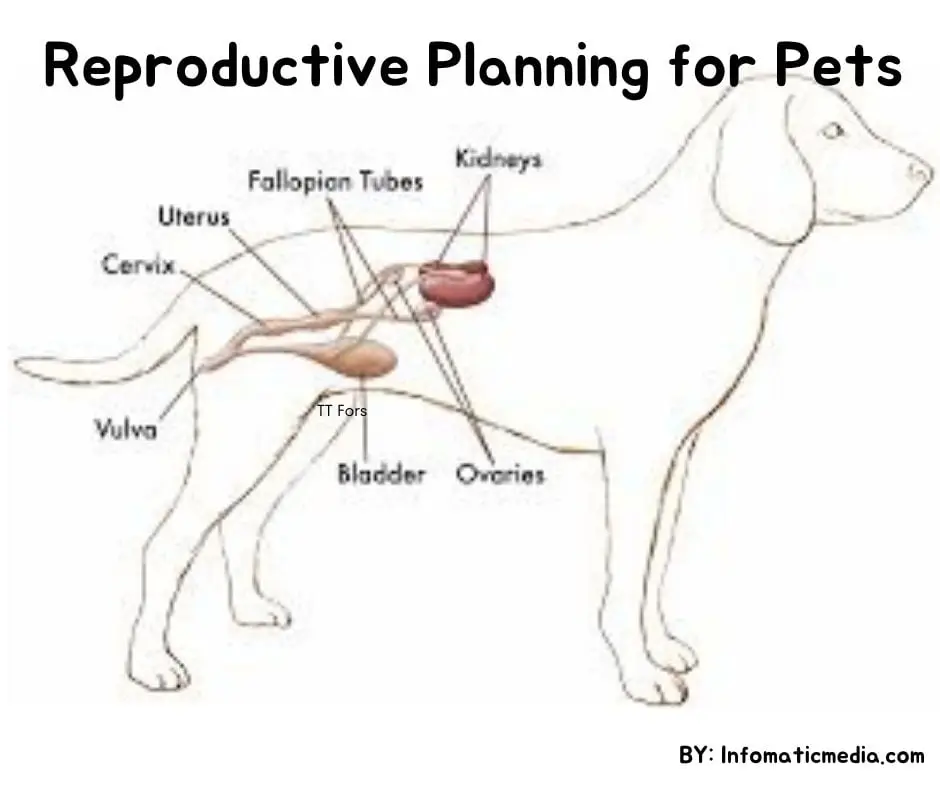Pets Mental Health
Just like humans, pets have emotions and minds that need care and attention. Ensuring the pets mental health is just as important as taking care of their physical health. A happy pet is a healthy pet, and meeting their emotional needs can help them lead a full and joyful life. Here’s a simple guide to understanding and nurturing your pets mental health and emotional well-being.
Understanding Pet Emotions
Pets and animals, whether they are dogs, cats, birds, or small animals, all have feelings. They can feel happiness, sadness, fear, and even love. They express these emotions in different ways. For example:
- Dogsmay wag their tails when they are happy or bark when they are excited or scared.
- Catsmight purr when they are content, but they can also hiss or hide when they feel threatened.
- Birdscan sing or chirp when they are happy but may become quiet or pluck their feathers if they are stressed.
Recognizing these signs is the first step in understanding your pet’s emotions. Paying attention to their behavior helps you know when they are feeling good and when something might be wrong.
The Importance of Pets Mental Health
Just like people, pets need mental stimulation to keep their minds sharp and healthy. Boredom can lead to stress, anxiety, and even destructive behavior. Here are some simple ways to keep your pet’s mind active and improve their mental health:
- Playtime: Regular play is essential for all pets. Whether it’s a game of fetch for a dog, a puzzle toy for a cat, or a fun activity for a bird, playtime keeps your pet’smind active and supports their mental health.
- Training: Teaching your petnew tricks or commands is a great way to challenge their brain. Dogs, in particular, love learning new things. Training sessions can also strengthen the bond between you and your pet.
- Toys and Puzzles: Providing toys that challenge your pet, like treat-dispensing toys or puzzle games, can keep them entertained and mentally stimulated. Make sure the toys are safe and suitable for your pet’ssize and breed.
- Exploration: Letting your petexplore new environments, whether it’s a walk in a different park for a dog or new places to climb for a cat, can help keep their mind active and improve their mental health.
Social Interaction
Social interaction is crucial for a pet’s emotional well-being. Pets are social creatures, and they need companionship, whether from humans or other pets.
- Dogs: Dogs are pack animals and thrive on interaction. Regular walks, playdates with other dogs, and spending quality time with their owners are essential for their happiness and to prevent dogs anxiety.
- Cats: While cats are often more independent, they still need social interaction. Playing with them, petting them, and talking to them can help them feel loved and secure, improving their mental health.
- Birds and Small Pets: Birds and small animals like rabbits also benefit from social interaction. Spending time with them, talking to them, and providing them with opportunities to interact with their environment can boost their mood and overall mental well-being of pets.
Reducing Stress and Anxiety
Pets can experience stress and anxiety, just like people. Changes in their environment, loud noises, or being left alone for long periods can make them feel uneasy. Here’s how to help reduce stress and anxiety in pets:
- Create a Safe Space: Ensure your pethas a safe, comfortable space where they can retreat if they feel stressed. This could be a quiet room, a cozy bed, or a special corner where they can relax.
- Routine: Pets, especially dogs, thrive on routine. Feeding them at the same time each day, regular walks, and consistent playtimes help them feel secure and reduce anxiety.
- Comforting Sounds: Soft music or white noise can help calm a nervous pet. For example, during a thunderstorm, playing calming music might help ease pets and mental health.
- Positive Reinforcement: Rewarding good behavior with treats, praise, or extra attention helps build a positive association with certain situations and can reduce fear and anxiety over time.
Recognizing Signs of Emotional Distress
It’s important to recognize when your pet is not feeling well emotionally. Some signs of emotional distress include:
- Changes in Appetite: If your pet suddenly eats less or more than usual, it might be a sign of stress.
- Aggression or Fearfulness: Pets that become unusually aggressive or scared might be experiencing anxiety.
- Withdrawal: A pet that hides or avoids interaction may be feeling sad or stressed.
- Destructive Behavior: Chewing furniture, scratching excessively, or other destructive behaviors can be signs of boredom or anxiety.
If you notice any of these signs, it’s essential to address them quickly. Sometimes, a change in routine or more attention can help, but in other cases, it might be necessary to consult a veterinarian or animal behaviorist.
Benefits of Pets’ Mental Health
While focusing on pets mental health, it’s important to note that pets also offer significant mental health benefits for their owners. The companionship of a pet can reduce stress, provide comfort, and even improve mood. This mutual relationship enhances both the mental health of the pet and the owner.
Conclusion
Taking care of your pets mental health is crucial for their overall happiness and health. By providing mental stimulation, social interaction, and a stress-free environment, you can help your pet live a joyful and fulfilling life. Remember, a happy pet is a healthy pet, and your love and attention make all the difference in their lives.





